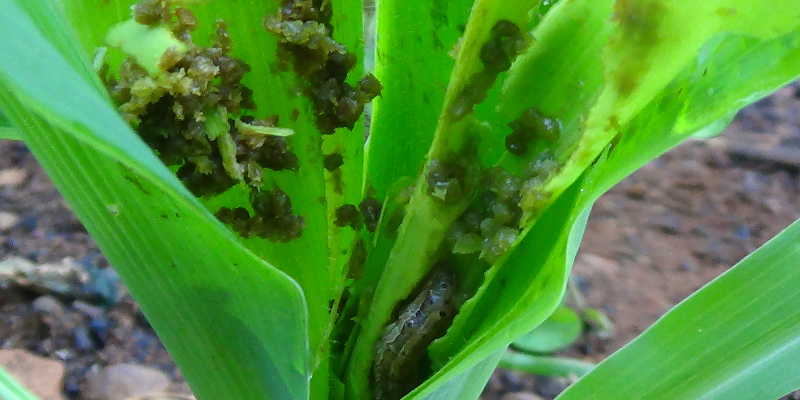News
Uganda tops entries in Armyworm competition

The monster hides deep in the head of the maize crop that it’s hardly visible during day. It ressufaces at night to devour the host
Uganda has registered the highest number of entries into the Fall Armyworm Tech Prize, a global competition meant to provide digital solutions to farmers to enable quickly identify and control the devastating fall army worm.
Out of the total 228 applications, Ugandan tech innovators posted 52 entries, followed by Nigeria with 25, USA 23, Ghana 22, and Kenya 21. The competition is organised by the Feed The Future, a US government supported programme aimed at increasing food security on the continent.
The Fall Armywoem has caused significant damage to farmers across the continent since two years ago when the pest first attacked farms in Southern Africa. Since then, the armyworm have spread to East and West Africa and seriously undermined the food security situation on the continent.
Bhavik Doshi, Research and Impact Coordinator for Nesta, the company that organised the contest on behalf of Feed the Future, said they were extremely pleased.
“We are thrilled with this result as it’s a tremendous response. We are also pleased that over 80% of the entries came from across Africa. It indicates that the people of Africa want to find solutions to the fall armyworm threat.”
The armyworm flies nearly 1,000 miles in just 30 hours and can easily migrate to neighbouring countries. The female moth can lay up to a total of 1,000 eggs in her lifetime, and in its larvae stage, can cause significant damage to crops if not managed appropriately. It has a taste for maize but also feeds on more than 80 species of plants including rice, sorghum, millet, sugarcane, vegetable crops and cotton. In sub-Saharan Africa, over 200 million people depend on maize for food security as it is a staple cereal crop grown by farmers.
The Fall Army Worm (FAW) poses a serious threat to Africa’s food security and although there are solutions, the steps to take are different in each region. So far, the infestation, which started in 2016, has resulted in some containment measures being undertaken, but none are long-term or sustainable.
Innovation and technology is believed to be crucial to finding solutions that can help mitigate the risk of decreasing food security in Africa. The value of small innovations means that farmers can start tackling the issue before it’s too late.
“In order to control the spread of the pest, smallholder farmers need improved access to immediate, accurate and actionable information on how to treat and protect their crops,” said a statement from Nesta.
It added: “Information on how to treat the pest needs to be quickly transmitted to farmers and those who advise them. The problem requires digital tools and approaches that source, analyse and translate data for farmers and relevant stakeholders to make timely and accurate decisions to combat the spread of the armyworm.”
The US Agency for International Development (USAID), together with LOL and FFAR have contributed $400,000 in prize awards, and the winners will have a chance to develop their prototypes and see immediate feedback from smallholder farmers.
The awards will be as follows;
” One grand prize of $150,000 to the most viable solution
” Two significant awards of $75,000 to the most promising solutions
” Two up and comer awards of $50,000 to early stage developments that show the most potential
USAID’s Digital Inclusion team argues that with advances in digital communications, social networks, satellite imagery, electronic data collection and sharing, sensing technologies, crowdsourcing, and the global movement to share open data, more information than ever can be efficiently communicated and made relevant for farmers. While digital tools are not the only solutions to eradicating the worm, technological solutions can help serve as a force multiplier to an already strained advisory service.
Ugandan agricultural scientists have already shown that the Fall Army Worm can be controlled by almost 90% using a genetically modified maize crop that is poisonous to the lava but safe for humans.
The release of the maize crop has suffered from the government’s failure to enact a law to regulate the use of genetically modified crops.
Comments






















